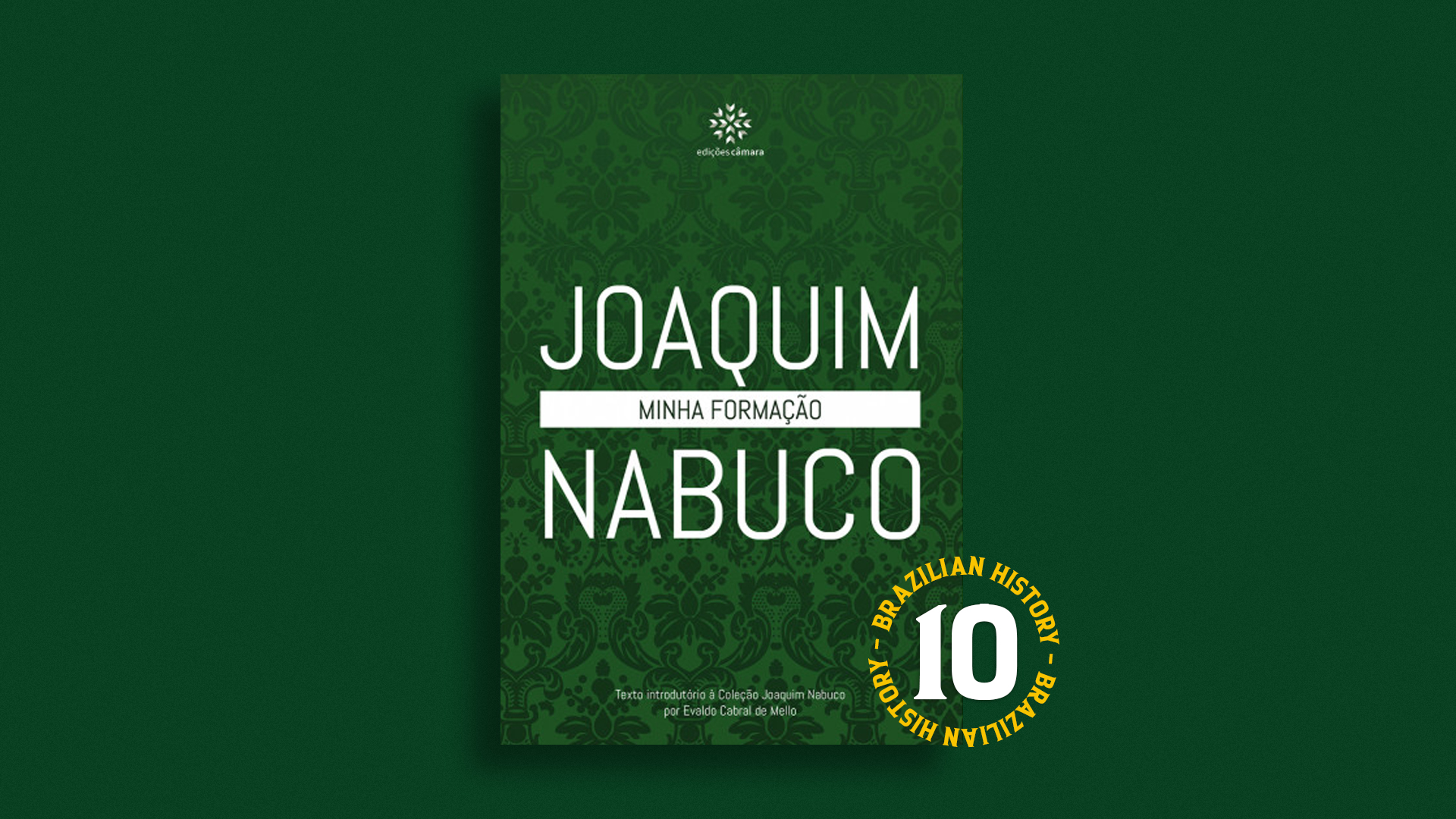I finished reading the book “My Formation” by Joaquim Nabuco, a book that reveals many details about Brazil and the world in the 19th century and sheds light on the author’s personality. I have already written my review of the book “Abolitionism,” where you can find the roots of the abolitionist movement and the actions taken by Joaquim Nabuco and his companions in support of this ideal.

However, in the book “My Formation,” Nabuco freely discusses events from his intellectual, political, and diplomatic life. He recounts his experiences abroad and the significant influences of countries such as England, the United States, and France, where he lived for a period of time. He also describes his encounters with prominent personalities such as philosopher Ernest Renan, writer George Sand, and Pope Leo XIII. In the book, you will find extensive digressions on the author’s political thought process, his initial literary attempts, and, most importantly, his active and remarkable involvement in the abolitionist movement.
In “My Formation,” you will come across everything that the book’s title encompasses: Joaquim Nabuco’s upbringing and his ideals. We can see his thoughts on the United States of America in a political context and even in something he observes about the American mindset of always striving to be at the forefront of the world in everything, something that we still witness today. He emphasizes to the reader the strong desire he had for the abolition of slavery in Brazil, which he considers to be more important than any other events he participated in.
As a staunch monarchist, he vividly describes his anguish over the expulsion of Emperor Dom Pedro II, stating that this event shook him more deeply than any national catastrophes he observed from afar.
The book details the events that occurred during Joaquim Nabuco’s time, but it is not limited to political facts in general. The author also shares his passion for the nature of Rio de Janeiro and lavishes praise on specific aspects of the city. And, of course, Joaquim Nabuco candidly expresses his views on republicanism in a technical manner, stating that the regime harbors a ferment of hatred and is marked by demagoguery. He even goes so far as to say that the elected politicians in Brazil during his time were making promises that could never be fulfilled. While he recognizes an ideal within republicanism, he argues that ideals can also be found in socialism, communism, and anarchism, but envy is present as well, leading to revolutionary impulses.
“My Formation” is an ideal book for a comprehensive understanding of Joaquim Nabuco’s genius and the significant events throughout his life. One observation I make about this book is a letter from André Rebouças to Dom Pedro II, which Joaquim Nabuco gained access to; it is described as a letter that brings tears to the reader’s eyes.
Monarchy could only return with an advantage to the country if monarchists proved themselves to be more patriotic than the republicans. – Joaquim Nabuco
Reference: NABUCO, Joaquim. Minha formação. Brazil: Edições Câmara, 2019.

Matheus Araújo
Matheus Araújo is the founder and editor of Brazilian History. Born in Rio de Janeiro and holding a degree in Advertising and Marketing, his passion for history led him to enroll at the Federal University of the State of Rio de Janeiro, where he is currently pursuing a degree in History Education.
